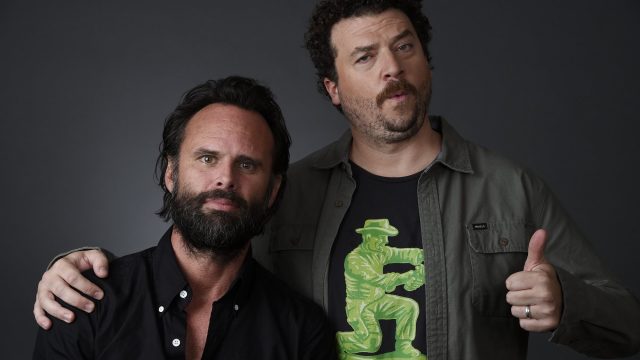The FAR is miffed that it has to wear a gown clearly designed for the more fashionable friends of its sister and plans to look subtly sulky at the end of the procession. During the ceremony the FAR will defiantly think about contrarian critics, microcinemas, crazy billionaire passion projects, a beloved Solute show, and controversial best-sellers.
Thanks to Miller for contributing, may he be first in the reception line. Send articles throughout the next week to ploughmanplods [at] gmail, post articles from the past week below for discussion, and Have a Happy Friday!
Adam Nayman weighs in on Armond White’s contrarianism and its book-length focus on Steven Spielberg:
The irony that the most commercially successful American filmmaker of all time’s most ardent and consistent critical defender over the past several decades (or at least up until the 2012 release of Lincoln)has been a critic so committed (at times with great conviction and breathtaking acuity) to interrogating the ideology of mainstream entertainment is as worth taking seriously as Spielberg himself—and not just as patient zero for the blockbusterization of the New Hollywood.
Nicholas Rapold at Criterion takes a lengthy survey of microcinemas weathering the pandemic and mostly likes what he sees:
Like other theatrical exhibition spaces, many microcinemas—which exist across the world, supported by engaged local audiences—have not been able to hold physical screenings. But they have been better positioned than larger venues for navigating the upheaval of the pandemic shutdowns through a variety of means: streaming, special projects such as publications, and drive-in screenings. What’s more, the rubric of microcinemas need not always require a single physical location, though usually there’s some kind of settled home or two. Financially, it’s helped that they’re more flexible, less beholden to the strictures and budgetary scale expected of traditional institutions, and, sometimes, inherently transitory. These endeavors grow and flourish on the margins and between the cracks.
Vice‘s Chris Shearer talks to Jonathan Lawrence about going from an unpaid music video gig to travelling to China to direct a multimillion dollar vanity project for a billionaire:
“He was like ‘ok, get to the action’, and I said ‘well the action isn’t important unless you care about the people that are in peril. I’m trying to build up that care first’. But no no, he wanted to get to the action. He kept talking about Transformers: ‘this is going to be big like Transformers’. He said it was a cross between Transformers and Shakespeare. I was trying to wrap my head around that and said ‘I think you’re going to alienate one of those audiences’.”
Austin Winsberg, creator of Zoe’s Extraordinary Playlist, talks to Gregory Ellwood and The Playlist (no relation) about pandemic challenges, song rights, and the upcoming season 2:
There was only one song that we went after season one that we didn’t get. In many cases, I had to write letters personally to the artists to ask them if we could use their music, but all of these won. We got every single song that we chased after with exception of one. I can tell you why. In season two, we’ve similarly gotten what we’ve [asked for]. I don’t know how.
With some of the dust settled, though the issue far from resolved, Vulture‘s Lila Shapiro delves into the controversial rollout of divisive best-seller American Dirt:
[Editor Amy] Einhorn and others had initially spoken of the book as a commercial page-turner, several Macmillan employees noted, but as the publication date drew closer, the editor seemed to lean into describing it as a literary masterpiece. Originally, advance copies had been splashed with a quote from Stephen King — “One hell of a novel about a good woman on the run with her beautiful boy” — but when [Don] Winslow’s Grapes of Wrath blurb arrived, it was swapped in. “There are certain ways of elevating a book so that it seems as though it is meant to define an experience,” one Macmillan employee explained. Einhorn had deemed American Dirt one of those rare, “profound” novels that “changes how we think about the world.” In an editor’s note affixed to advance copies, she stressed the author’s moral agenda, noting that [author Jeanine] Cummins had embarked on this project because migrants at the border were being portrayed as a “faceless brown mass.” The author, she explained, “wanted to give these people a face.”
And at Uproxx, Brian Grubb asks the most important question of our times: What movies need to be remade with new leads Walton Goggins and Danny McBride?
The Fugitive: The key to this one is that McBride has to play the Harrison Ford character and Goggins has to play the Tommy Lee Jones character. I don’t think anyone will have any objections to this, but for those who may be questioning it, consider:
-
- Walton Goggins giving the “warehouse, farmhouse, henhouse, outhouse” speech
- Danny McBride storming into a crowded ballroom and shouting “This corrupt motherfucker switched the samples!”
I know there’s no cussing in the original version of that line. But get a good picture in your brain of Danny McBride saying that. I think you’ll agree that it plays.

